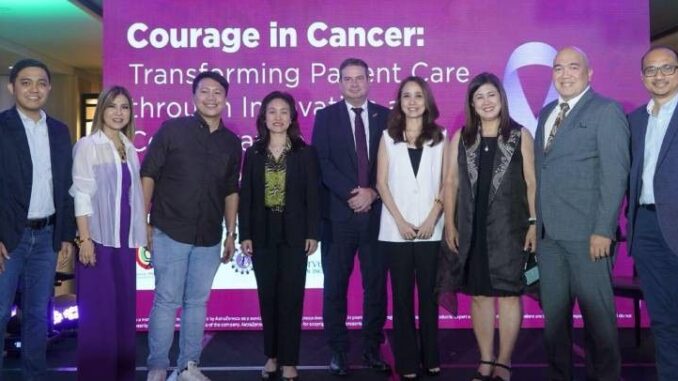
In the Philippines, cancer remains one of the most pressing healthcare issues we face, ranking as the third leading cause of death, and affecting nearly 200,000 individuals in 2022 alone.
This reality underscores the critical need for enhanced cancer care, early detection, and holistic support systems.
These objectives were front and center at the Courage in Cancer Forum, held during Oncology Patient Day 2024 , which also served as a source of inspiration, hope, and a way to acknowledge and honor the resilience of patients and the unwavering dedication of those championing their cause.
Throughout our journey in broadcast, radio, print, and online media, we’ve come face-to-face with many people who have been touchedby this condition in different ways: patients, caregivers, survivors, as well as those who have been left behind. Forums such as Courage in Cancer are crucial in the journey of every patient in their family. It offers hope, knowledge, and courage in the fight against cancer.
(L-R) Dr. Marvin Mendoza, medical oncologist and program emcee; Walter Bacareza, Area Vice Pres., PhilHealth; author Jing Castañeda, multimedia journalist and producer; Dr. Josephine Tolentino, Pres., Philippine Society of Medical Oncology; Dr. Beatrice Tiangco, member of the Nat’l. Integrated Cancer Control Council; Carmen Auste, VP of Cancer Coalition Phil.; Karen Villanueva, Pres., Philippine Alliance of Patient Organizations; Nikoy de Guzman, Pres., ICanServe Foundation; Dr. Cyril Tolosa, Medical Affairs Director, AstraZeneca; Sharon Chang – Oncology Business Unit Head; Frank Kevin De Jesus, son and caregiver to a cancer patient.
As the host and moderator of this impactful event, I had the privilege of guiding meaningful conversations with some of the most influential voices in the healthcare community. The forum brought together key players from PhilHealth, Cancer Coalition Philippines (CCPh), ICanServe Foundation, Philippine Alliance of Patient Organizations (PAPO), Cancer Warriors Foundation, AstraZeneca, and the Philippine Society of Medical Oncology (PSMO), for a day of inspiration, collaboration, and renewed commitment to transforming cancer care in our country.
Collaborating for cancer care
One of the event’s highlights was the keynote speech by Dr. Beatrice Tiangco of the National Integrated Cancer Control Council. She emphasized the necessity of a localized, hospital-based cancer registry, urging the use of Philippine-gathered data to enhance treatment strategies.
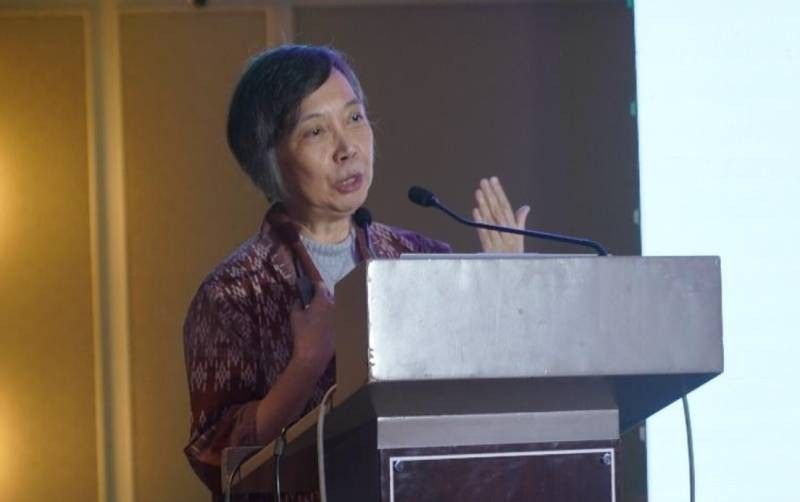
Dr. Beatrice Tiangco talked about the importance of centralized data in pursuing innovations in medicine.
“We want to give treatments that are truly personalized for each individual patient,” Dr. Tiangco noted, “but we cannot do that if we do not have our own data. ” This push for precision medicine, powered by a functioning national registry, promises to elevate cancer care standards in the Philippines.
Equally compelling was the keynote address by Walter Bacareza, PhilHealth’s Area Vice President for Northern and Central Luzon, who emphasized the pivotal role of collaboration in addressing the complexities of cancer care. “No single entity can solve the complexity of cancer care alone,” he declared.
“We need the joint effort of government, healthcare providers, NGOs, the academic sector, and patients themselves.” Bacareza detailed PhilHealth’s nationwide cancer care initiatives, including the Z Benefits package, designed to support treatments for catastrophic illnesses.
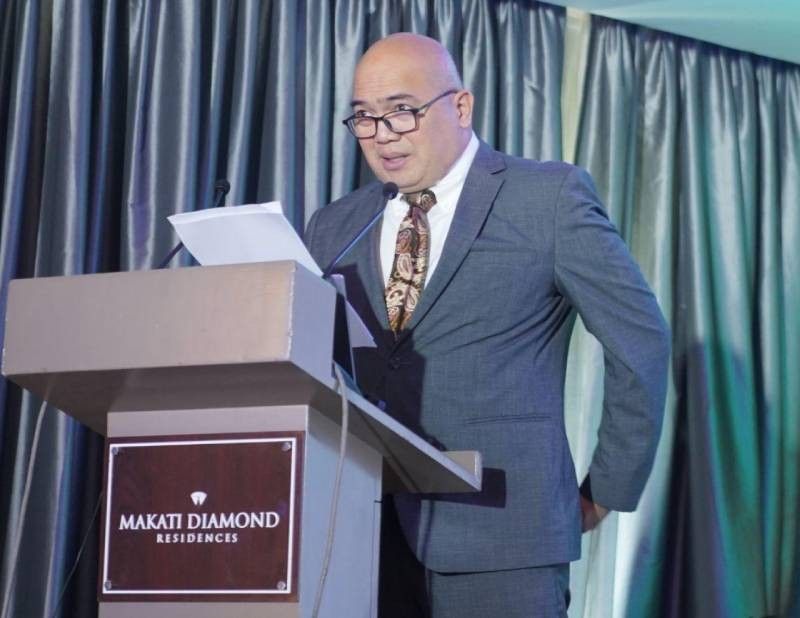
PhilHealth Area Vice Pres. for Northern and Central Luzon Walter Bacareza shared the state agency’s continued efforts to help make healthcare more accessible and available to patients.
Empowering patients through advocacy and innovation
Patient advocacy groups like the Cancer Coalition Philippines, ICanServe Foundation, and PAPO also took center stage during a panel discussion on patient-centric initiatives. Kara Magsanoc-Alikpala, founding president of ICanServe, shared the foundation’s work in teaching early breast cancer detection techniques through their community-focused program, Ating Dibdibin.
Meanwhile, Karen Villanueva, PAPO’s president, outlined their mission to amplify patient voices in policymaking and improve the implementation of the Universal Healthcare Law .
The global perspective added depth to the discussions, with Johan Lennefalk, Commissioner of Business of the Swedish Embassy, presenting Sweden’s exemplary cancer care system. He highlighted their high five-year cancer survival rates – 90% for breast cancer, 95% for prostate cancer, and 70% for bowel cancer – as a direct result of robust government investments and screening programs. “We made significant investments into cancer care,” Lennefalk shared, “as 11% of our GDP is spent on health.”
AstraZeneca’s Medical Affairs Director Dr . Cyril Tolosa reinforced the forum’s mission by reiterating the company’s dedication to patient-centric approaches and their alignment with the 12 promises of the National Integrated Cancer Control Act (NICCA).
The NICCA Law is one of the most significant healthcare policies our country has enacted in recent years, with aims to reduce the impact of cancer and improve cancer survival rates. Among its other objectives, the proper implementation of this law means improvements to cancer literacy and the successful development of national and regional cancer centers, and perhaps more importantly, expanded financial support for cancer patients.
“We are willing and eager to partner with patient groups and policymakers in accelerating our vision to transform cancer care, ” said Dr. Cyril, emphasizing the importance of better access to screening, diagnosis, and innovative treatments.
Stories of hope and resilience
At its heart, the forum celebrated the indomitable courage of patients and their caregivers. Lorenzo Rue, a lung cancer survivor, recounted his journey with candor and gratitude, sharing how his recent tests showed clear results after years of battling the disease.
Meanwhile, Judge Ma. Cristina Laderas-Maguinao, a cancer patient herself, paid tribute to caregivers, recognizing their vital role in a patient’s healing journey. “I know it’s difficult to have cancer, but it’s also difficult to care for someone who has cancer,” she said.
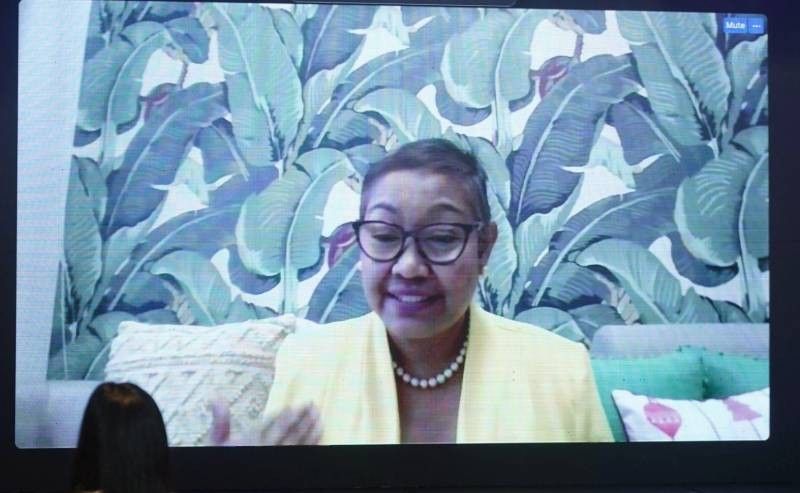
As a cancer patient herself, Judge Ma. Cristina Laderas-Maguinao bravely shared her own experience at the Courage in Cancer forum.
Carmen Auste, CEO of Cancer Warriors Foundation and Vice President of Cancer Coalition Philippines, highlighted the importance of self-care for both patients and caregivers. “Let’s make sure we do the things that make us happy and positive,” she urged. “We need that so we can continue fighting. There is life beyond cancer.”
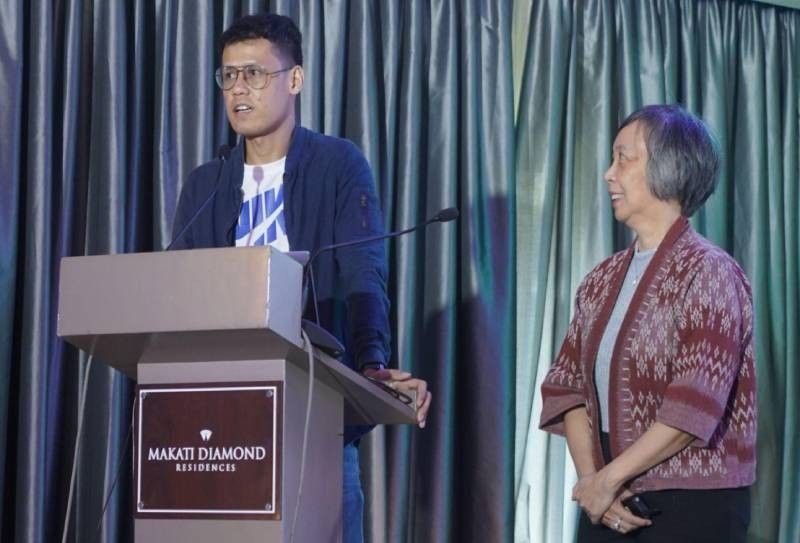
Franz Kevin De Jesus (left), a son to a lung cancer patient, spoke about how they are battling cancer together as a family.
I admire the people and organizations behind the Courage in Cancer forum, where they successfully led different voices from a wide range of stakeholders in the healthcare sector and united them in a collective effort to break down barriers and reimagine a future where cancer is not only treated but conquered.
It demonstrates the power of partnerships among government agencies, patient advocacy group s, healthcare providers, and the private sector in creating a holistic cancer care ecosystem.
Reflecting on the stories of courage shared during the forum, we are reminded that advancing cancer care requires more than just innovation; it requires compassion, collaboration, and an unwavering commitment to doing what we can, what we are good at, to help the members of our communities.
Let us honor the courage of every patient, caregiver, and advocate by continuing to push the boundaries of what is possible. We can create a world where cancer does not need to be a life sentence but a challenge we overcome: one patient, one story, one breakthrough at a time.
——
Follow my social media accounts JingCastaneda: Instagram, Facebook, YouTube, Tiktok and Twitter. Please share your stories or suggest topics at [email protected].


Be the first to comment